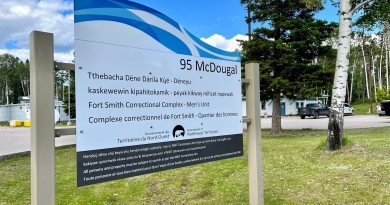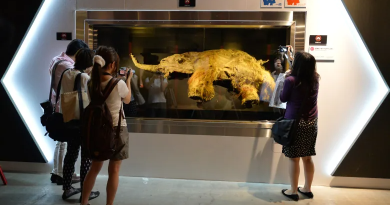Ice-Blog: Arctic Oil – a white elephant?
 The conference: Arctic Frontiers has attracted a record number of participants this year and huge media interest. For the first time in addition to a political and a science section, there is also a business section. It will focus on oil, gas and minerals. Clearly, once more, the Arctic is a “hot topic”.
The conference: Arctic Frontiers has attracted a record number of participants this year and huge media interest. For the first time in addition to a political and a science section, there is also a business section. It will focus on oil, gas and minerals. Clearly, once more, the Arctic is a “hot topic”.
The conference opened with an exceptionally good panel discussion. The conference title is “Climate and Energy”, and it is hardly surprising that there is a lively debate on that here. Norway is, after all, an oil nation, but at the same time a country well known for innovation and wise financial management. And then, of course, comes the urgency of the climate conundrum…

Here in Tromso, Norway’s “Arctic capital”, the question of Arctic oil obviously plays a key role. The representative of the region Line Miriam Sandberg, County administrator for business, culture and health, and the panel chair Olav Orheim, (GRID Arendal, a centre that works with UNEP) made it quite clear that a lot of people here are in favour of Arctic development, including oil and gas exploration, in the interests of jobs and economic benefits.
The representative of the oil industry Kjell Giæver, Director of Petroarctic found himself a bit out on a limb, though. Apart from the Tromso representative, there was no real support for or confidence in Arctic oil development amongst the panelists. Guest of honour HSH Prince Albert II of Monaco, who is quite committed to Arctic protection and has a tradition of Arctic exploration in his family, stressed the need to protect against any dangers to the fragile environment.

The Chair of the US Arctic Research Commission Fran Ulmer called for a carbon tax and measures to protect the climate and reduce fossil fuel consumption. Although she stressed this was her personal opinion and she could not speak for ANY government (!), she is obviously in a very influential position, and anything she says on this has to be taken seriously.
It will come as no surprise that Nina Jensen, CEO of WWF Norway, is against oil exploration in the Arctic. I can remember her here at previous conferences having a much more difficult time, with plenty of opposition from other speakers. This time, my impression was that she was definitely not in a minority.

Probably the most noteworthy stance – certainly the one that impressed me most – was taken by Jens Ulltveit-Moe, the CEO of Umoe, one of the largest, privately owned companies in Norway, active amongst other things in shipping and energy. Here we had an industry representative, who said quite clearly that with the current low oil price Arctic oil was simply not viable, and this would remain the case for many years to come. (The oil industry rep as you can imagine disagreed). And by then, he said, the EU’s climate targets and the international support for a two-degree target would make fossil fuels a non-option. The future lies in renewables, he says, and Arctic oil investment will probably be a white elephant. (His group is involved in bioenergy), Now there is food for thought at the start of this high-profile gathering, which will see high-ranking government representatives from the Arctic nations, but also China and others, discuss “climate and energy”. If the opening debate is anything to go by, the next two days will be very lively.

Other stories from Arctic Frontiers 2015:
Scandinavian Arctic should cooperate more: report, Barents Observer
Will Barents oil investments be financial disaster?, Barents Observer



